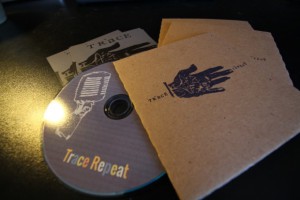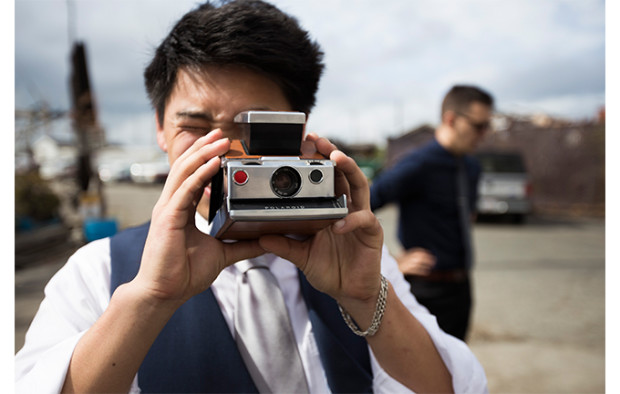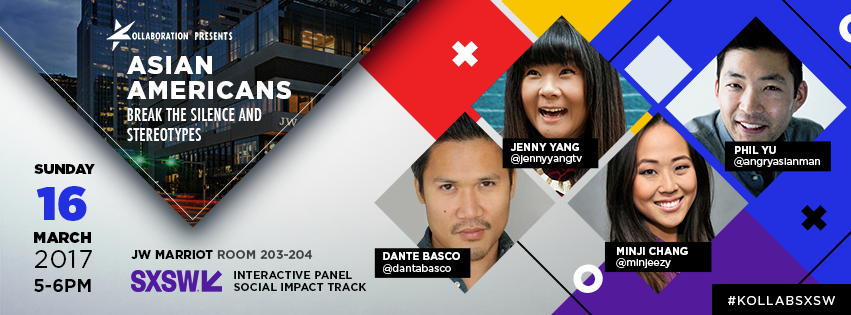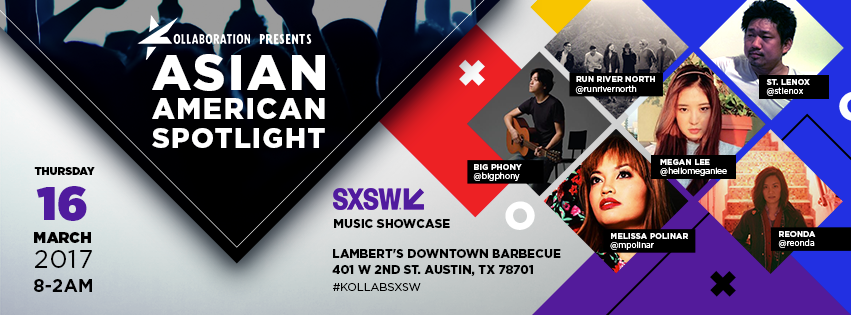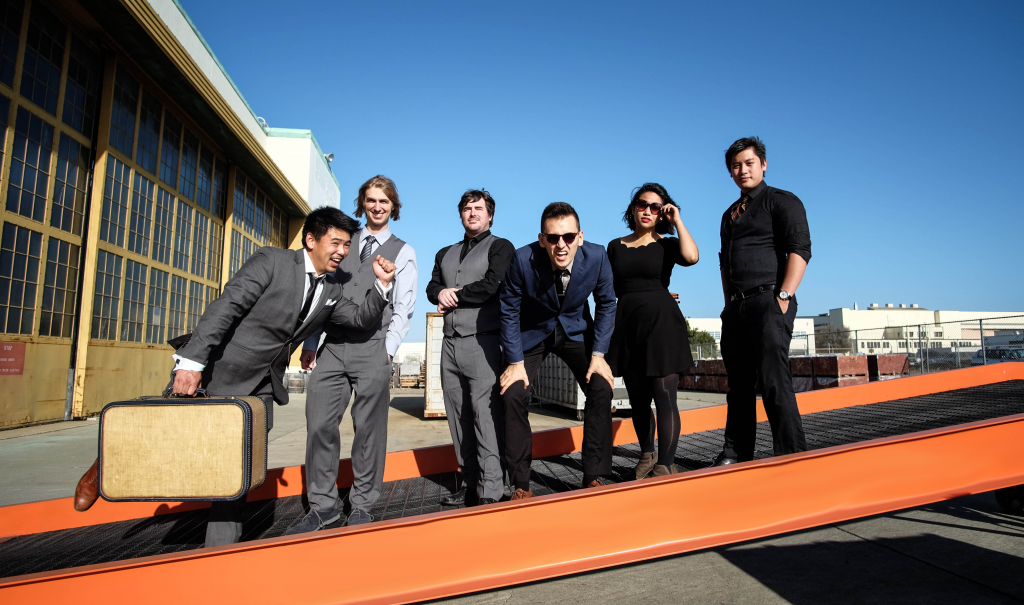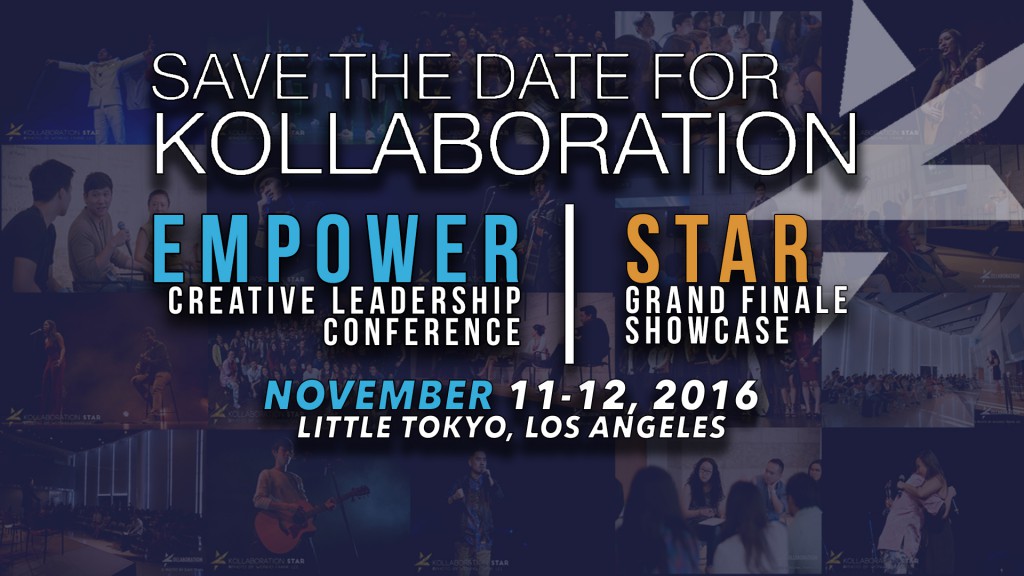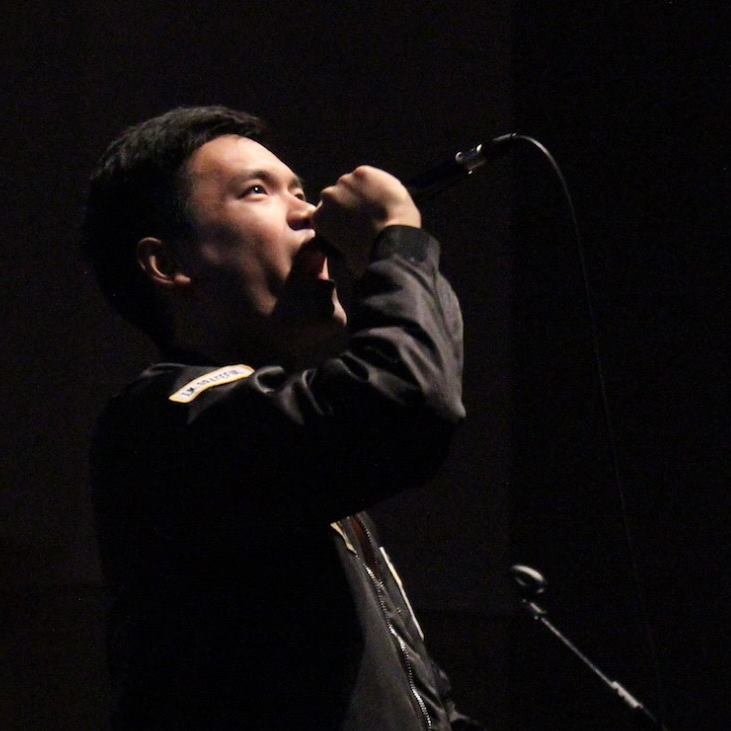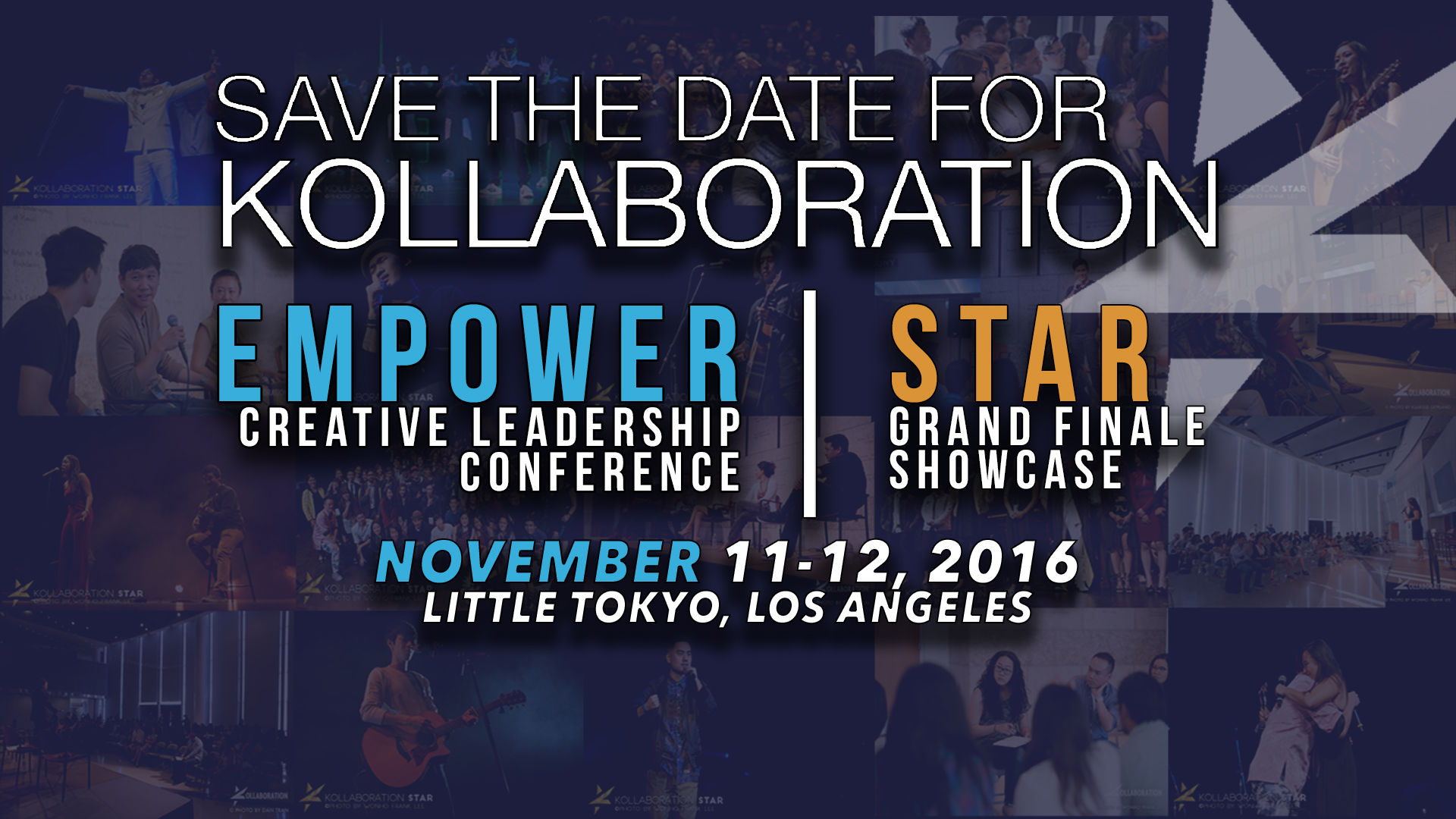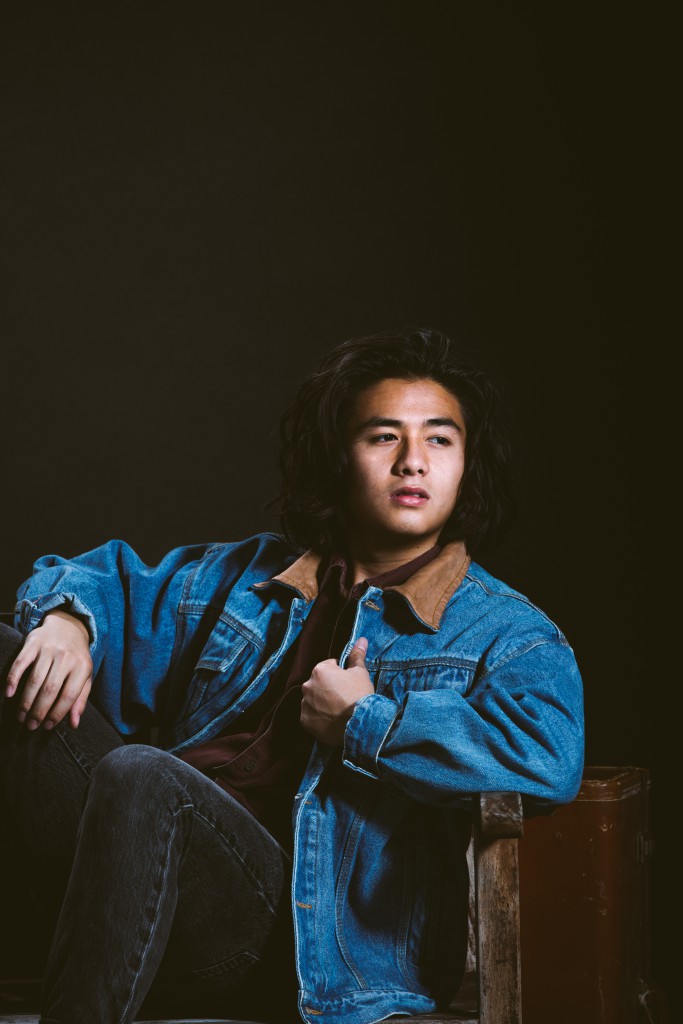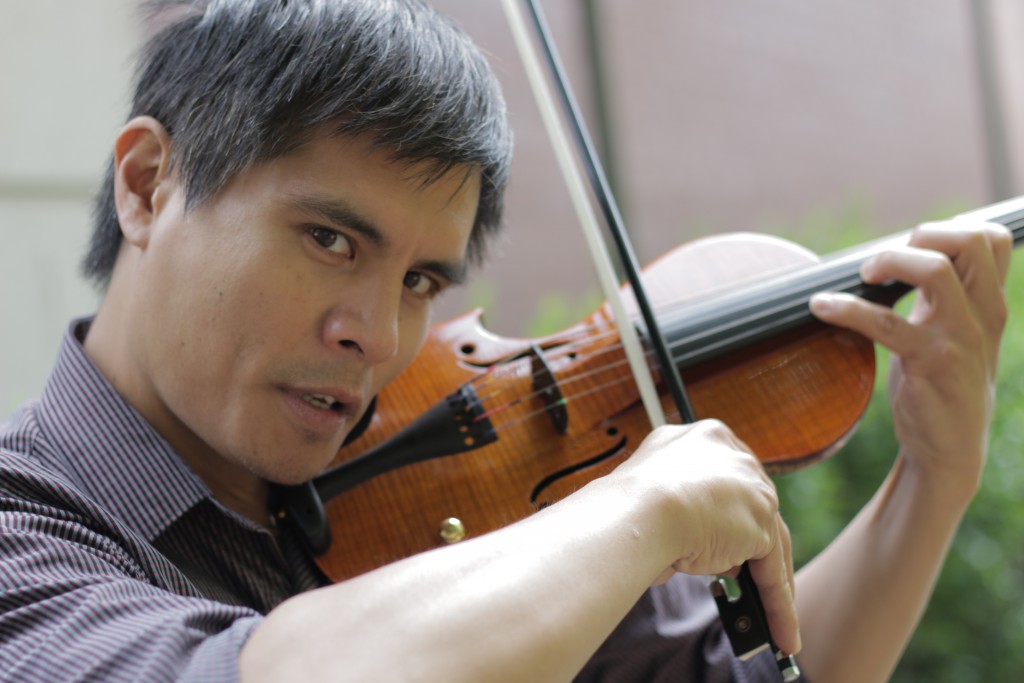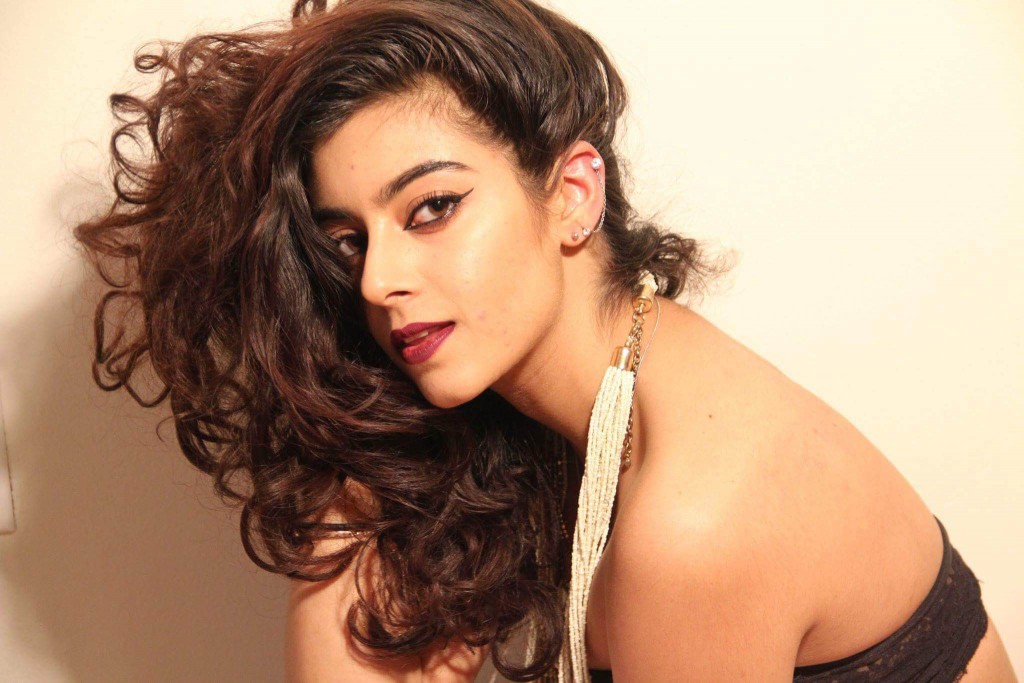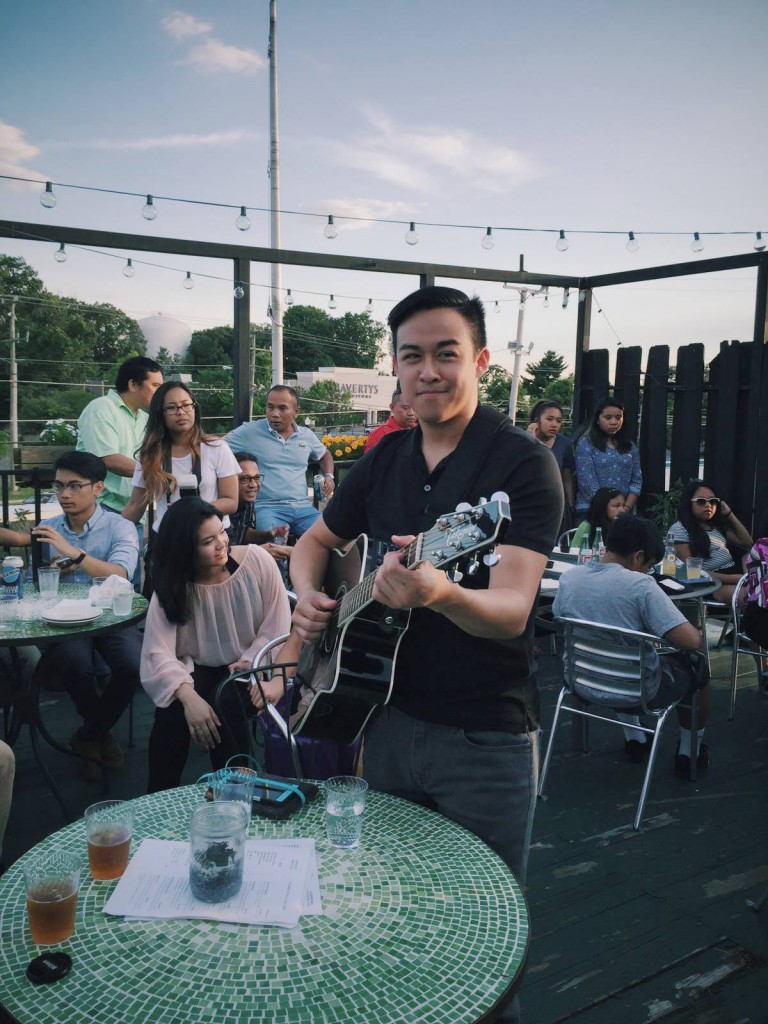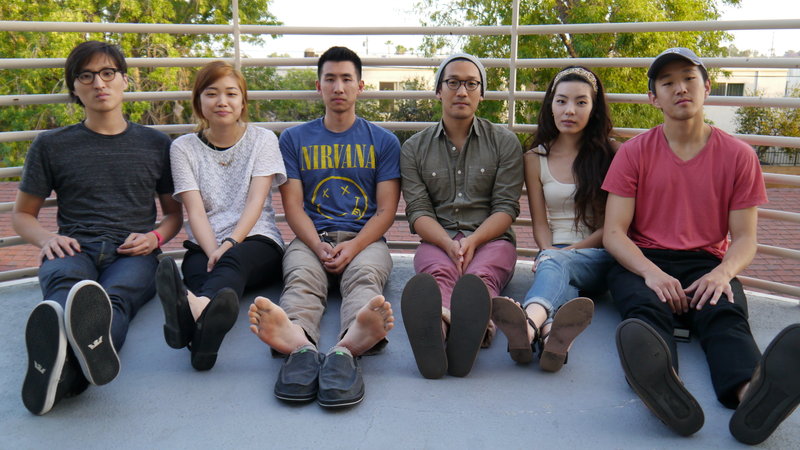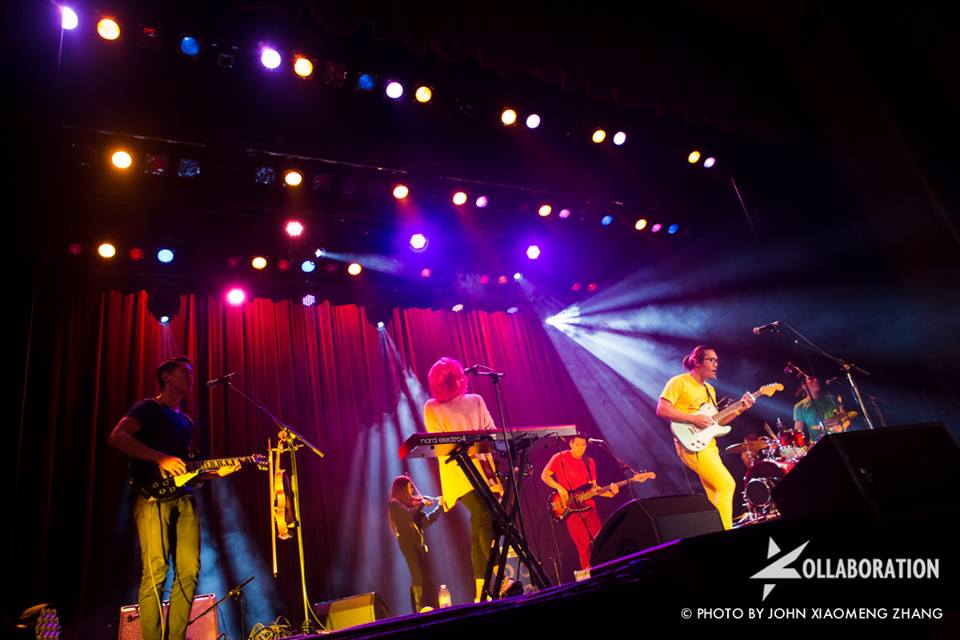After a month-long online campaign, Kollaboration finalists Trace Repeat recently finished crowdsourcing their debut EP with over $8,000. Along with meeting their initial $5,000 goal, the band will now perform at South By Southwest and produce a behind-the-scenes video of the recording process.
The six-piece Oakland, California band began two years ago by Zach Hing and Wesley Woo, and was originally a side project for all the members. What began as a cover band of Motown and classics like Stevie Wonder, Michael Jackson, and James Brown, Woo said that Trace Repeat began to draw on those influences to write original songs, creating their own style of funk band. In May 2016, the band met Kollaboration San Francisco staff member Lauren Lee and last November, they represented SF as the city finalists at the Kollaboration STAR showcase. Representation in the arts is important to the band, and their multiethnic Asian American identities played a large part in the band’s Indiegogo story.
Zach and Wesley told much of their story in the campaign video, and on page they wrote, “We believe Trace Repeat can affect change in Asian American representation.” As one of the few— and often only— Asian American bands in the Bay Area, Trace Repeat recognizes how important it is to see accurate representation in the media. By focusing their campaign on the mission of empowering their communities, Hing said that this first record just happened to be about Asian American empowerment.
“Us being a practically Asian American band has kind of attracted certain negative connotations from people who see us on stage and don’t really get it,” Wesley said. “I don’t just want to ask people to give money for a record, I want to ask people to give money to a cause that really matters.”
Giving is not without its perks. To fit the band’s throwback aesthetic of older days filled with postcards, polaroids, and typewriters, Trace Repeat’s perks for donors featured a number of those very antiques. For $10 backers got a typewriter-written thank you note, $75 gets an engraved pocket watch, and $200 gets a vintage case made from repurposed suitcases and “comes fully loaded with CDs, stickers, flyers, and other Trace Repeat memorabilia.” And for $1,000 and the chance to “own a piece of the album,” Zach and Wesley are giving away their guitars and bass used to record the album (though no one has claimed it yet.) The band wants their debut EP to recall the days of finding an old-school vinyl gem, and they put a lot of thought into perks to reflect the band. The idea for the actual items came to the them on a road trip.
“We were in a very small car, with no air conditioning, driving through the hottest part of central California,” Wesley adds. “And I personally love collecting vintage things, just weird things no one wants anymore. We wanted to make interesting rewards, so why don’t we find really old stuff and turn it into new stuff.”
With less than 24 hours to go of the campaign and a fully funded studio album on the way, Trace Repeat is most excited for fans to hear the album. Their recording studio, Watershed Sound, has helped the band not feel stressed out about producing the album while they work on mixing the songs. The six songs on the EP are all Trace Repeat originals, familiar to fans who have seen the band perform before, but the EP won’t sound old hat.
“I feel like one thing that’s cool about the album is that the album really is going to be in itself something pretty new,” David Kaiser-Jones, Trace Repeat’s trombone player, said. “They’re going to be something that’s going to be really exciting to share with people.”
Along with the EP, Trace Repeat is taking their new songs on the road to Austin as one of the band’s stretch goals. David acted as one of the biggest cheerleaders for the band to accept an invitation to play at the Red Gorilla Stage at the Austin, Texas festival after they reached the first stretch goal of $6,000. During their four day stay in Texas they also plan to play for the first time in an Irish pub on St. Patricks Day.
“Guys, we’re gonna learn a Dropkick Murphy’s cover,” Zach said.
With Trace Repeat’s first EP is on the way, the band looks to set themselves apart as a funk band. Zach and Wesley agree that the main focus of the Indiegogo campaign isn’t to compare or compete Trace Repeat to other Asian American groups, but to add the band to the mix of Asian American artists. Wesley says that when Trace Repeats performs, he doesn’t think of the band as making a certain statement about Asian American empowerment when they get on stage. He only sees Trace Repeat as “a really awesome funk band.”
“All we’re saying, and this goes plain and simple in our Indiegogo campaign, is that there’s just not enough of us.” Zach said. “Bands like Run River North and Far East Movement are great; I really, really stand for what they do. It’s that key word— there’s not enough of it. We want it to become something that isn’t the anomaly anymore, we want adequate representation.”
Trace Repeat’s Indiegogo campaign ended February 11 with $8,165 from 194 backers. The album can be expected later in 2017, and Trace Repeat can be seen on their YouTube channel, Facebook, and Instagram.
![]()
